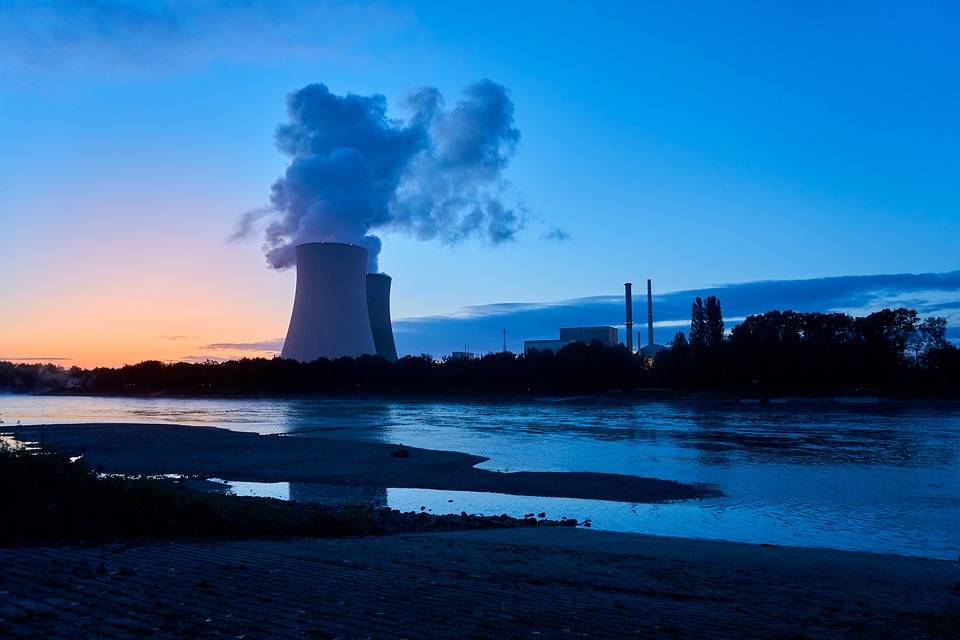The Role of Nuclear Energy in the Modern World
In this day and age, the demand for energy is higher than ever before. With the population growing and technology advancing rapidly, the need for sustainable and efficient sources of energy is crucial. Nuclear energy has emerged as a key player in this field, providing clean and reliable power to millions of people around the world.
Understanding Nuclear Energy
Nuclear energy is the energy that is released during nuclear reactions. In a nuclear power plant, this energy is harnessed through a process called nuclear fission, where the nucleus of an atom is split into two smaller nuclei. This process releases a tremendous amount of heat energy, which is used to generate electricity.
Contrary to popular belief, nuclear energy is a clean source of energy that does not produce greenhouse gases or air pollutants. In fact, nuclear power plants emit virtually no carbon dioxide during operation, making them a crucial tool in the fight against climate change.
Common Misconceptions about Nuclear Energy
Despite its numerous benefits, nuclear energy still faces opposition from the public. This opposition is often fueled by misconceptions and fear of the unknown. Here are some common misconceptions about nuclear energy and the truth behind them:
1. Nuclear Accidents are Common
One of the biggest fears associated with nuclear energy is the potential for accidents. The most well-known nuclear accident is the Chernobyl disaster in 1986, which resulted in a widespread release of radioactive materials. However, it is important to note that such accidents are extremely rare and have become even less likely with advancements in technology and safety protocols. In fact, the safety record of nuclear power plants is comparable to other forms of energy generation.
2. Nuclear Waste is a Major Problem
Another common misconception about nuclear energy is the issue of nuclear waste. While it is true that nuclear fission produces radioactive waste, the amount of waste is relatively small compared to other forms of energy generation. Additionally, nuclear waste can be safely stored and managed using advanced technologies such as underground repositories and reprocessing facilities. It is important to note that the issue of nuclear waste is continuously being addressed and improved upon in the nuclear industry.
3. Nuclear Energy is Not Renewable
Some people argue that nuclear energy is not a renewable source of energy. While it is true that nuclear fuel is finite, there is an abundant supply of uranium, the primary fuel for nuclear reactors. Additionally, advancements in nuclear technology, such as breeder reactors, can significantly extend the lifespan of nuclear fuel and reduce the need for mining and extraction. Therefore, nuclear energy can be considered a sustainable source of energy for the foreseeable future.
Addressing Public Concerns and Building Trust
In order to build public trust and acceptance of nuclear energy, it is crucial to address misconceptions and concerns effectively. This can be achieved through education, transparency, and open communication with the public. Here are some strategies to address common concerns and build trust in nuclear energy:
1. Education and Outreach
One of the most effective ways to combat misconceptions about nuclear energy is through education and outreach. Providing accurate and accessible information to the public about the benefits, safety, and environmental impacts of nuclear energy can help dispel myths and build trust. Public forums, educational programs, and community engagement initiatives can all play a role in educating the public about nuclear energy.
2. Transparency and Accountability
Transparency and accountability are key elements in building trust with the public. Nuclear energy companies and regulators should be transparent about their operations, safety measures, and environmental impact. Regular communication with the public, including updates on plant performance, safety inspections, and waste management practices, can help foster trust and openness. Additionally, establishing independent oversight bodies and regulatory agencies can provide an extra layer of accountability and assurance.
3. Embracing Innovation and Sustainability
As technology advances, the nuclear industry continues to innovate and improve upon its practices. Embracing sustainable practices, such as recycling nuclear waste and developing advanced reactor designs, can help address environmental concerns and build public confidence in nuclear energy. By investing in research and development, the nuclear industry can further enhance safety, efficiency, and environmental performance.
Conclusion
Nuclear energy has the potential to play a significant role in meeting the world’s growing energy needs while addressing climate change and reducing carbon emissions. By addressing common misconceptions, building trust with the public, and embracing innovation, the nuclear industry can continue to thrive and provide clean and reliable energy for generations to come. Education, transparency, and sustainable practices are crucial in shaping a positive public opinion of nuclear energy and securing its place in the modern world.
